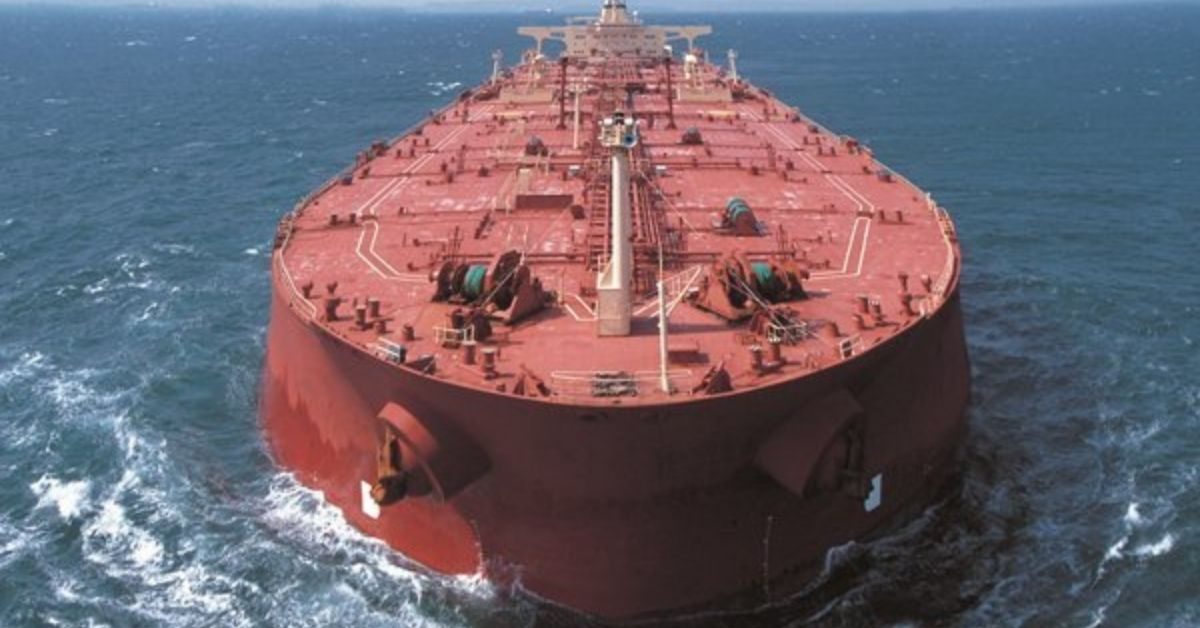Russia still relies on Western insurers to cover more than half of the tanker fleet that exports its oil, according to data compiled by Bloomberg, and the country’s energy officials are voicing concerns about the situation.
The Group of Seven and its partners in the European Union have decreed that any shipment of crude using services based in their member countries must be sold below a $60-a-barrel price cap. The measure is designed to curb the Kremlin’s energy-export revenues, limiting its ability to keep funding the invasion of Ukraine.
Since early December, between 50% and 60% of vessels that have carried Russian oil are protected against shipowners’ liability risks by members of the London-based International Group of P&I Clubs, according to data compiled by Bloomberg based on information in the Equasis shipping system. The data do not indicate whether the vessels are covered for hull or cargo insurance.
This dependence on western coverage limits Russia’s ability to negotiate higher prices for its oil, a key source of revenue for the nation’s budget. It could also leave country’s exports vulnerable to disruption if the G-7 decides to toughen the restrictions.
“Russia’s high dependence on insurance from G-7 and European countries for shipping oil means the price-cap coalition has strong leverage,” Meri Pukarinen, Europe-Russia policy officer at the Helsinki-based Centre for Research on Energy and Clean Air, said by email. The West could exploit that by lowering the cap, she said.
Senior figures in Russia’s oil industry have highlighted this situation as one of their key concerns.
“In the current conditions, it’s important to create new instruments, new systems of insurance and reinsurance that would be accepted by our clients, our partners,” Russia’s Deputy Prime Minister Alexander Novak said at the Energy Ministry’s annual meeting in Moscow on Tuesday.
The pressure of sanctions on the Russian oil industry will only increase this year, Alexander Dyukov, Chief Executive Officer of Gazprom Neft PJSC, said at the same event. The nation needs to prepare by developing an independent financial, shipment and oil-trading infrastructure, he said.
Limited Options
The data compiled by Bloomberg is in line with the findings of CREA, which estimated that insurers from G-7 and European nations in February provided shipowner’s liability coverage for nearly 60% of all tankers carrying Russian crude. In early 2022, just before the war in Ukraine, the share of major foreign insurers was close to 80%, CREA data show.
The remaining vessels carrying Russian oil, according to the data gathered by Bloomberg, are covered either by Russian or unknown providers. Those shipments could potentially find their way to clients willing to pay above the price cap.
Russia’s in-country insurance options are limited. Moscow-based Ingosstrakh Insurance Co., which is part-owned by Italy’s Assicurazioni Generali SpA, said earlier this month it will revise its protection and indemnity portfolio to make sure it’s fully compliant with international sanctions. Russian National Reinsurance Company, tasked with providing state-backed coverage for all sanctioned Russian sectors including marine, has itself been excluded from the European market.
Price-Cap Compliance
The data on western P&I coverage has its limits and an entry on the Equasis system is not a guarantee that the insured tanker only carries crude sold below the price cap. Under the EU regulations, insurers have to obtain attestations from their clients that the Russian crude shipped on the covered tankers complies with the cap.
If an attestation were to be falsified, the insurer is not considered in breach of sanctions as long as they can prove they acted in good faith. Also, the EU so does not require insurers to report their data to authorities on a regular basis. Companies are only required to keep their records for five years in case of investigations.
The opaque nature of Russian oil trading makes it difficult to access price information. The US Treasury estimates that about 75% of Russia’s oil could be moving outside of the price cap, while the International Energy Agency estimated that, as of February, the nation’s crude cargoes on average were sold well below the price cap.
Both the US administration and the IEA say the restrictions are doing their job by curbing Russia’s budget revenue while keeping oil flowing onto global markets.







